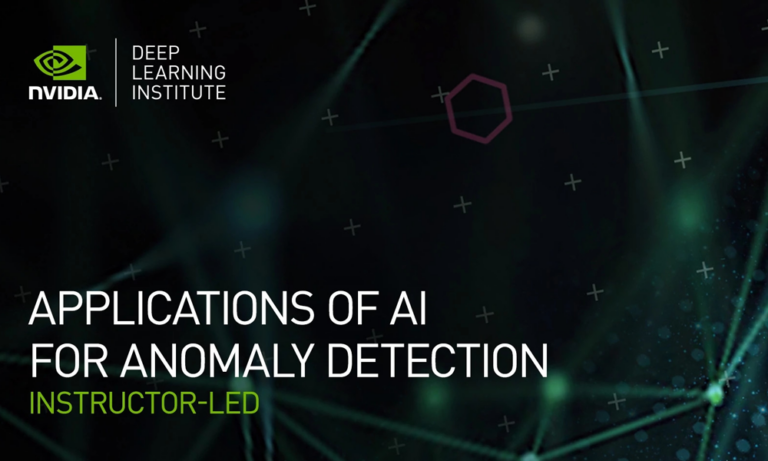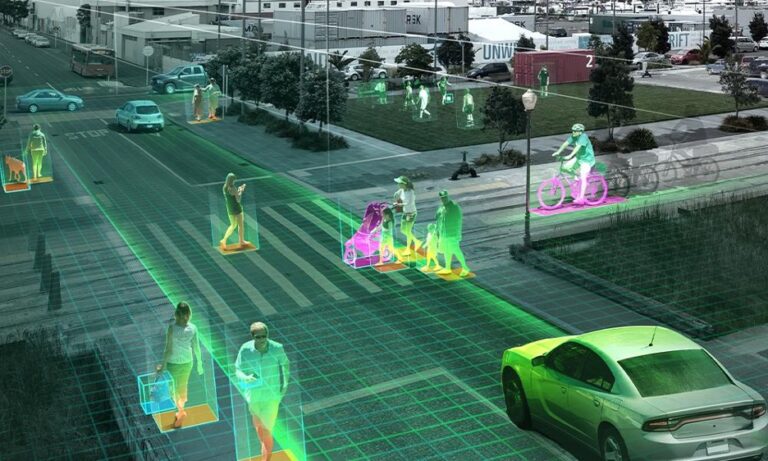Posted by Catherine Armato, Program Manager
This week, the 59th annual meeting of the Association for Computational Linguistics (ACL), a premier conference covering a broad spectrum of research areas that are concerned with computational approaches to natural language, is taking place online.
As a leader in natural language processing and understanding, and a Diamond Level sponsor of ACL 2021, Google will showcase the latest research in the field with over 35 publications, and the organization of and participation in a variety of workshops and tutorials.
If you’re registered for ACL 2021, we hope that you’ll visit the Google virtual booth in Gather Town to learn more about the projects and opportunities at Google that go into solving interesting problems for billions of people. You can also learn more about Google’s participation on the ACL 2021 Expo page, and see a full list of Google publications below (Google affiliations in bold).
Organizing Committee
Senior Area Chairs include: Dan Roth, Emily Pitler, Jimmy Lin, Ming-Wei Chang, Sebastian Ruder, Slav Petrov
Area Chairs include: Ankur P. Parikh, Artem Sokolov, Bhuwan Dhingra, Cicero Nogueira dos Santos, Colin Cherry, Dani Yogatama, David Mimno, Hideto Kazawa, Ian Tenney, Jasmijn Bastings, Jun Suzuki, Katja Filippova, Kyle Gorma, Lu Wang, Manaal Faruqui, Natalie Schluter, Peter Liu, Radu Soricut, Sebastian Gehrmann, Shashi Narayan, Tal Linzen, Vinodkumar Prabhakaran, Waleed Ammar
Publications
Parameter-Efficient Multi-task Fine-Tuning for Transformers via Shared Hypernetwork
Rabeeh Karimi Mahabadi*, Sebastian Ruder, Mostafa Dehghani, James Henderson
TicketTalk: Toward Human-Level Performance with End-to-End, Transaction-Based Dialog Systems
Bill Byrne, Karthik Krishnamoorthi, Saravanan Ganesh, Mihir Sanjay Kale
Increasing Faithfulness in Knowledge-Grounded Dialogue with Controllable Feature
Hannah Rashkin, David Reitter, Gaurav Singh Tomar, Dipanjan Das
Compositional Generalization and Natural Language Variation: Can a Semantic Parsing Approach Handle Both?
Peter Shaw, Ming-Wei Chang, Panupong Pasupat, Kristina Toutanova
Exploiting Language Relatedness for Low Web-Resource Language Model Adaptation: An Indic Languages Study
Yash Khemchandani, Sarvesh Mehtani, Vaidehi Patil, Abhijeet Awasthi, Partha Talukdar, Sunita Sarawagi
Causal Analysis of Syntactic Agreement Mechanisms in Neural Language Model
Matthew Finlayson, Aaron Mueller, Sebastian Gehrmann, Stuart Shieber, Tal Linzen*, Yonatan Belinkov
Modeling Fine-Grained Entity Types with Box Embeddings
Yasumasa Onoe, Michael Boratko, Andrew McCallum, Greg Durrett
TextSETTR: Few-Shot Text Style Extraction and Tunable Targeted Restyling
Parker Riley*, Noah Constant, Mandy Guo, Girish Kumar*, David Uthus, Zarana Parekh
Which Linguist Invented the Lightbulb? Presupposition Verification for Question-Answering
Najoung Kim*, Ellie Pavlick, Burcu Karagol Ayan, Deepak Ramachandran
H-Transformer-1D: Fast One-Dimensional Hierarchical Attention for Sequences
Zhenhai Zhu, Radu Soricut
Are Pretrained Convolutions Better than Pretrained Transformers?
Yi Tay, Mostafa Dehghani, Jai Gupta, Dara Bahri, Vamsi Aribandi, Zhen Qin, Donald Metzler
Benchmarking Scalable Methods for Streaming Cross Document Entity Coreference
Robert L Logan IV, Andrew McCallum, Sameer Singh, Dan Bikel
PhotoChat: A Human-Human Dialogue Dataset With Photo Sharing Behavior For Joint Image-Text Modeling
Xiaoxue Zang, Lijuan Liu, Maria Wang, Yang Song*, Hao Zhang, Jindong Chen
Focus Attention: Promoting Faithfulness and Diversity in Summarization
Rahul Aralikatte*, Shashi Narayan, Joshua Maynez, Sascha Rothe, Ryan McDonald*
A Cognitive Regularizer for Language Modeling
Jason Wei, Clara Meister, Ryan Cotterell
Language Model Augmented Relevance Score
Ruibo Liu, Jason Wei, Soroush Vosoughi
Cross-Replication Reliability – An Empirical Approach to Interpreting Inter-rater Reliability
Ka Wong, Praveen Paritosh, Lora Aroyo
TIMEDIAL: Temporal Commonsense Reasoning in Dialog
Lianhui Qin*, Aditya Gupta, Shyam Upadhyay, Luheng He, Yejin Choi, Manaal Faruqui
StructFormer: Joint Unsupervised Induction of Dependency and Constituency Structure from Masked Language Modeling
Yikang Shen*, Yi Tay, Che Zheng, Dara Bahri, Donald Metzler, Aaron Courville
MOLEMAN: Mention-Only Linking of Entities with a Mention Annotation Network
Nicholas FitzGerald, Jan A. Botha, Daniel Gillick, Daniel M. Bikel, Tom Kwiatkowski, Andrew McCallum
Neural Retrieval for Question Answering with Cross-Attention Supervised Data Augmentation
Yinfei Yanga, Ning Jinb, Kuo Linb, Mandy Guoa, Daniel Cera
ROPE: Reading Order Equivariant Positional Encoding for Graph-Based Document Information Extraction
Chen-Yu Lee, Chun-Liang Li, Chu Wang∗, Renshen Wang, Yasuhisa Fujii, Siyang Qin, Ashok Popat, Tomas Pfister
Measuring and Improving BERT’s Mathematical Abilities by Predicting the Order of Reasoning
Piotr Piekos, Henryk Michalewski, Mateusz Malinowsk
Improving Compositional Generalization in Classification Tasks via Structure Annotations
Juyong Kim, Pradeep Ravikumar, Joshua Ainslie, Santiago Ontañón
A Simple Recipe for Multilingual Grammatical Error Correction
Sascha Rothe, Jonathan Mallinson, Eric Malmi, Sebastian Krause, Aliaksei Severyn
nmT5 – Is Parallel Data Still Relevant for Pre-training Massively Multilingual Language Models?
Mihir Kale, Aditya Siddhant, Noah Constant, Melvin Johnson, Rami Al-Rfou, Linting Xue
QA-Driven Zero-Shot Slot Filling with Weak Supervision Pretraining
Xinya Du*, Luheng He, Qi Li, Dian Yu*, Panupong Pasupat, Yuan Zhang
AgreeSum: Agreement-Oriented Multi-Document Summarization
Richard Yuanzhe Pang*, Adam D. Lelkes, Vinh Q. Tran, Cong Yu
Disfl-QA: A Benchmark Dataset for Understanding Disfluencies in Question Answering
Aditya Gupta, Jiacheng Xu*, Shyam Upadhyay, Diyi Yang, Manaal Faruqui
Training ELECTRA Augmented with Multi-word Selection
Jiaming Shen*, Jialu Liu, Tianqi Liu, Cong Yu, Jiawei Han
A Survey of Data Augmentation Approaches for NLP
Steven Y. Feng, Varun Gangal, Jason Wei, Sarath Chandar, Soroush Vosoughi, Teruko Mitamura, Eduard Hovy
RealFormer: Transformer Likes Residual Attention
Ruining He, Anirudh Ravula, Bhargav Kanagal, Joshua Ainslie
Scaling Within Document Coreference to Long Texts
Raghuveer Thirukovalluru, Nicholas Monath, Kumar Shridhar, Manzil Zaheer, Mrinmaya Sachan, Andrew McCallum
MergeDistill: Merging Language Models using Pre-trained Distillation
Simran Khanuja, Melvin Johnson, Partha Talukdar
DoT: An Efficient Double Transformer for NLP tasks with Tables
Syrine Krichene, Thomas Müller*, Julian Martin Eisenschlos
How Reliable are Model Diagnostics?
Vamsi Aribandi, Yi Tay, Donald Metzler
Workshops
Interactive Learning for Natural Language Processing
Organizers include: Filip Radlinski
Invited Panelist: Julia Kreutzer
6th Workshop on Representation Learning for NLP (RepL4NLP-2021)
Organizers include: Chris Dyer, Laura Rimell
Third Workshop on Gender Bias for Natural Language Processing
Organizers include: Kellie Webster
Benchmarking: Past, Present and Future
Invited Speaker: Eunsol Choi
SemEval-2021, 15th International Workshop on Semantic Evaluation
Organizers include: Natalie Schluter
Workshop on Online Abuse and Harms
Organizers include: Vinodkumar Prabhakaran
GEM: Natural Language Generation, Evaluation, and Metrics
Organizers include: Sebastian Gehrmann
Workshop on Natural Language Processing for Programming
Invited Speaker: Charles Sutton
WPT 2021: The 17th International Conference on Parsing Technologies
Organizers include: Weiwei Sun
Tutorial
Recognizing Multimodal Entailment
Instructors include: Cesar Ilharco, Vaiva Imbrasaite, Ricardo Marino, Jannis Bulian, Chen Sun, Afsaneh Shirazi, Lucas Smaira, Cordelia Schmid
* Work conducted while at Google.


 The NVIDIA Deep Learning Institute (DLI) is offering instructor-led, hands-on training on how to implement multiple AI-based approaches to solve a specific use case of identifying network intrusions for telecommunications.
The NVIDIA Deep Learning Institute (DLI) is offering instructor-led, hands-on training on how to implement multiple AI-based approaches to solve a specific use case of identifying network intrusions for telecommunications. Join the NGC team for a webinar and live Q&A on Aug. 25, at 10 a.m. PT
Join the NGC team for a webinar and live Q&A on Aug. 25, at 10 a.m. PT